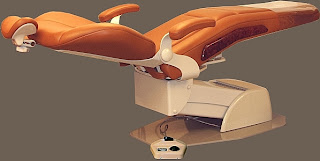If cold, hot, acidic or sweet food and beverages make your teeth painful or sensitive, then you suffer from the signs and symptoms of tooth sensitivity. This is the common name applied to root sensitivity or dentin sensitivity. It is very common condition, with over half of the American population suffering from some degree of tooth sensitivity.
Reasons for Dentin Hypersensitivity or Tooth Sensitivity
Peridonatal diseases or receding gums are the underlying cause for tooth sensitivity. These conditions lead to an exposure of dentin present in the root areas and are responsible for causing discomfort in most patients. Most senior citizens and people aged above 40 experience enhanced sensitivity in their teeth and gums. The reasons behind this are fairly simple to understand.
The roots of your teeth are devoid of any protective covering –unlike that of the enamel of your teeth. They have a very soft cover which is known as the “cementum”. Loss of this cover leaves the roots exposed and prone to higher sensitivity, pain and discomfiture. Use of abrasive toothbrushes, erratic flossing techniques or overzealous brushing can also lead to removal of enamel from the teeth—exposing dentin in the process.
Rich and acidic diets can cause further erosion and dissolution of the surface of the teeth. Some of the serious dental conditions which arise due to exposure of dentin and dental erosion are connected with GERD and Bulimia—which cause enhanced levels of acid in the mouth.
The Right Ways of Treating Tooth Sensitivity
It is important to inform your dental expert about any sensitive areas in your dental setup, so that the problem of dentin hypersensitivity or tooth sensitivity can be diagnosed at an early stage and all necessary steps can be taken to treat the same on in a proactive way.
Sensitive teeth can be really painful and can cause problems while maintaining simple oral hygiene regimes. As they can also point towards decays, holes in the teeth, signs of broken tooth or other conditions which require other procedures or filling; it becomes all the more important to address teeth sensitivity-- as soon as possible.
How to Prevent Tooth Sensitivity
The chances of reducing teeth sensitivity can be enhanced by maintaining a carefully planned oral health care system in place. New and modern dental equipment, tools and dental components help in the prevention of enamel erosion and are being used by dental clinics globally. Low abrasion toothpastes and special formulas go a long way in alleviating hyper sensitivity of teeth and are being recommended by dental hygienists and oral health care takers around the world. Several desensitizing agents are now available and can be used to protect your teeth against decay and erosion as well.
So, instead of worrying about the signs and symptoms of teeth sensitivity, simply contact your dentist or expert for the best possible solution.

0 comments:
Post a Comment